
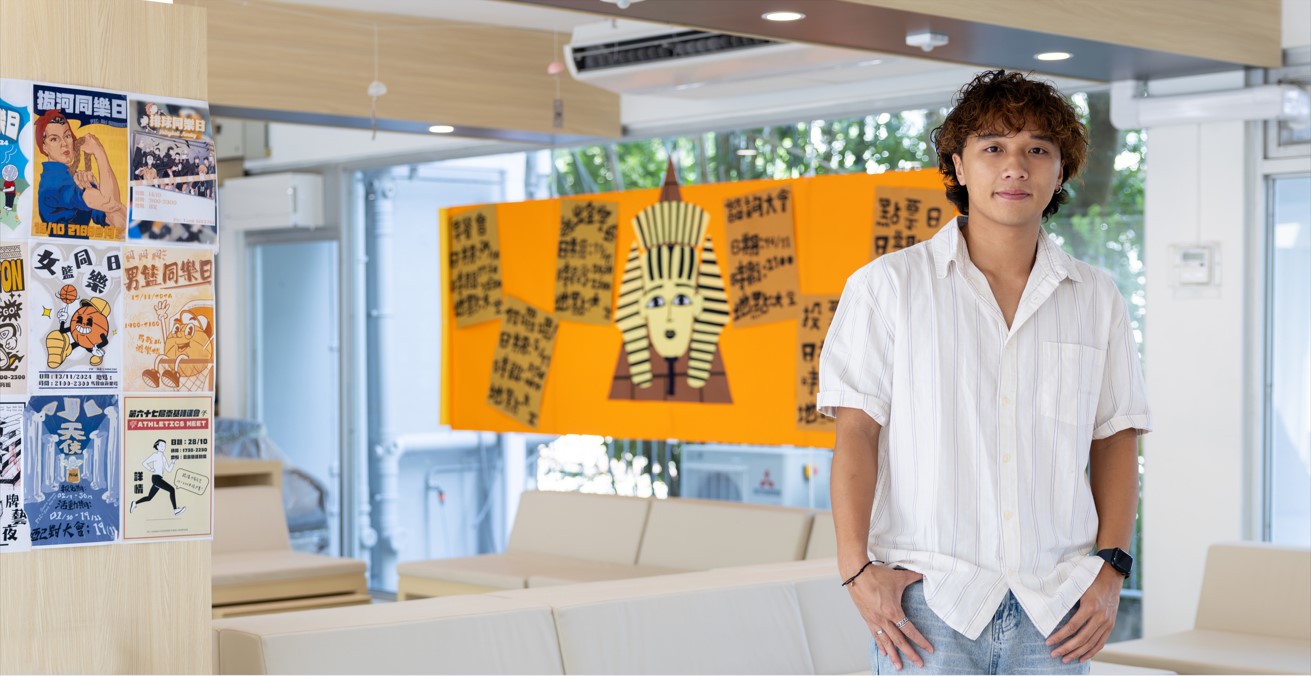
“Have you lived in a hostel?” This usual greeting between the students or the alumni illustrates that the hostel is a core part of students’ collective memories in the University. Madam S. H. Ho Hall (Ho Hall), completed in 1978, underwent its second renovation work this summer, with facilities upgraded to fulfil the needs of residents. This issue of “In Dialogue of Excellence” takes the opportunity to interview the former chair of the Ho Hall Residents’ Association, Mr. Ronald Chan, a Year 4 student of the Department of Social Work, to share his experiences living in Ho Hall and to discuss the changes in the hostel over the years, and the spirit of Ho Hall.
Q: When did you start living in Ho Hall? Why did you choose here?
I moved into Ho Hall when I was a freshman and have been living here for four years now. Ho Hall was my first choice when ranking my hostel preferences. Although I didn't have any secondary school classmates joining Chung Chi College, I had a senior from secondary school living in Ho Hall, so I chose to live here to take care of one another.
Initially, I thought the hostel was just a place to live, like home. However, I later read some information about the culture of Ho Hall online and learnt that it had a friendly atmosphere. The hostel lobby was quite spacious, allowing everyone to have fun together, which made it easy for new residents to integrate into the new environment. This was very attractive to me at the time when I didn't have many friends. I remember when I first moved in, the lobby was full of posters detailing various activities, which made me think, “Ah! There are so many activities in the hostel!” After the renovation, the lobby has not only extended the tradition of activity promotion, but also added a shared kitchen and dining area. I believe that the relationships between residents can be further strengthened.
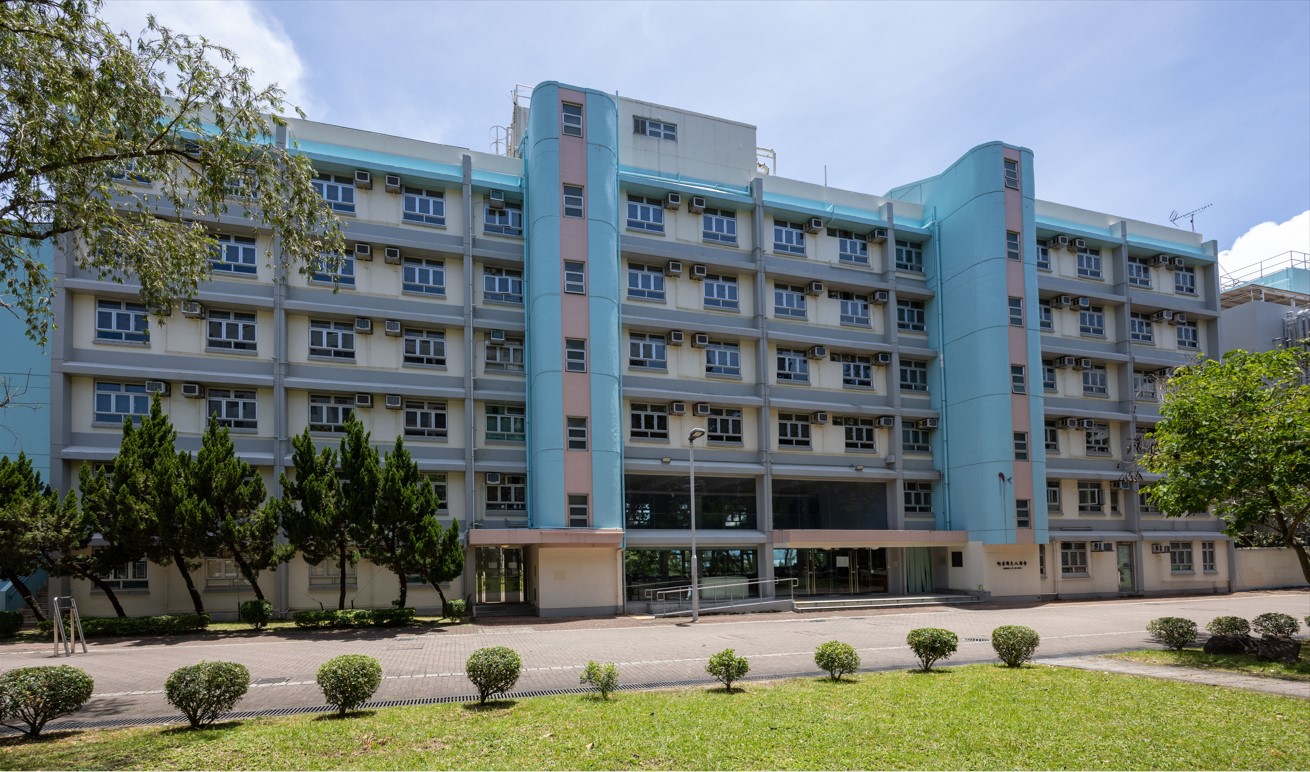
Madam S. H. Ho Hall (Ho Hall) is a co-ed hostel completed in 1978, providing around 200 places. The hostel was named after Madam Ho Sin Hang to commemorate the great generosity of the Ho family, as Dr. Ho Sin Hang donated to the project.
Q: You were the chairperson of the Ho Hall Residents’ Association. Could you share your experiences and memorable moments during your term?
Due to the outbreak of COVID-19 in the second semester, half of my term was spent on pandemic arrangements and Zoom meetings, so the memories were quite profound. Fortunately, the pressure of pandemic prevention work was not as great as I had imagined, thanks to the arrangements and support from Ho Hall’s management—wardens, assistant wardens, and hostel workers. They always cared about the health of the students. There was a period when some students in Ho Hall contracted the virus, and some residents were worried about an outbreak in the hostel. We could only do our best to distribute pandemic supplies, call for preventive measures, and try to soothe everyone's emotions.
The pandemic led to the cancellation of hostel activities, and it wasn’t until I was promoted to sophomore that they resumed, coinciding with the Hall O (orientation activities) hosted by Residents’ Association to assist new students in moving in. It was an unforgettable event because my role changed from being a newcomer being taken care of to a resident taking care of newcomers. Although the preparation was quite complicated and involved a lot of coordination, it was also a lot of fun, and the hard work was worth it.
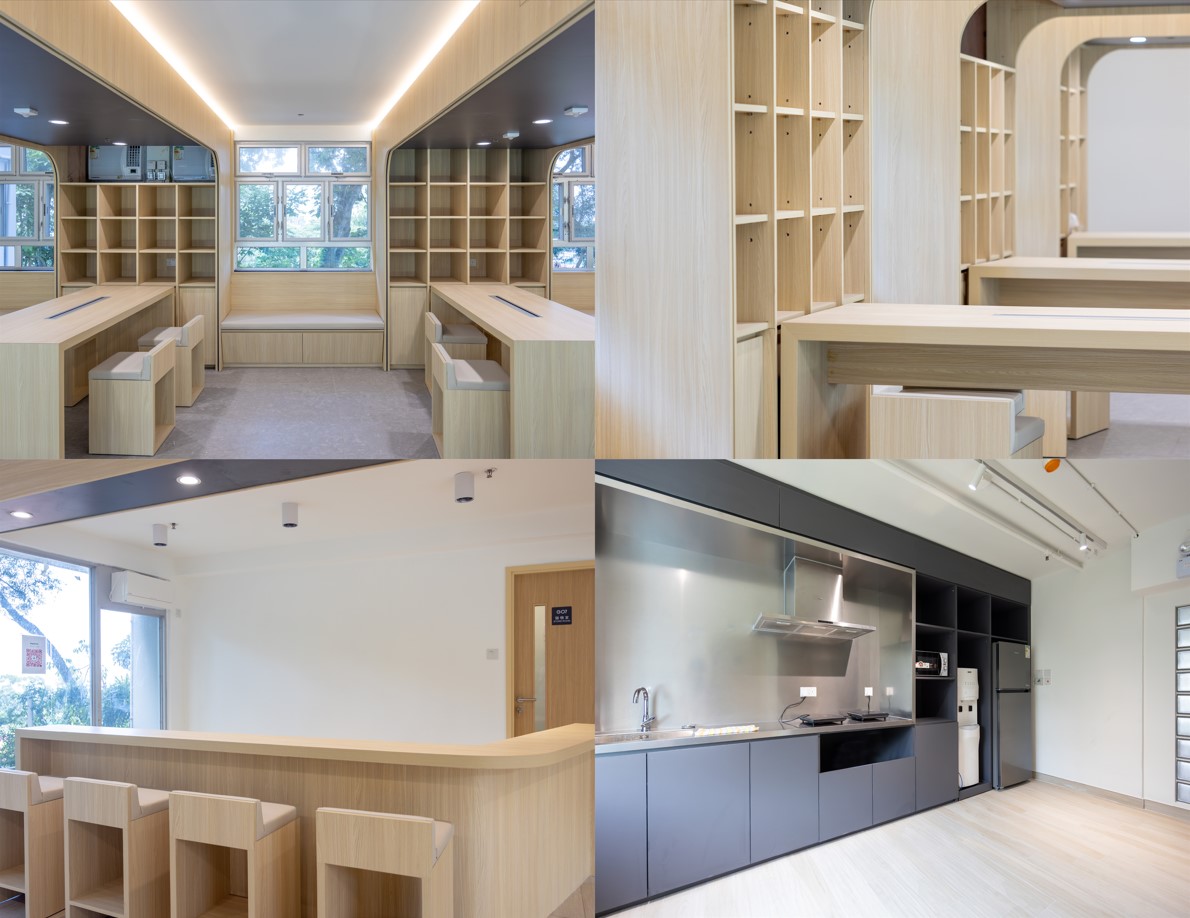
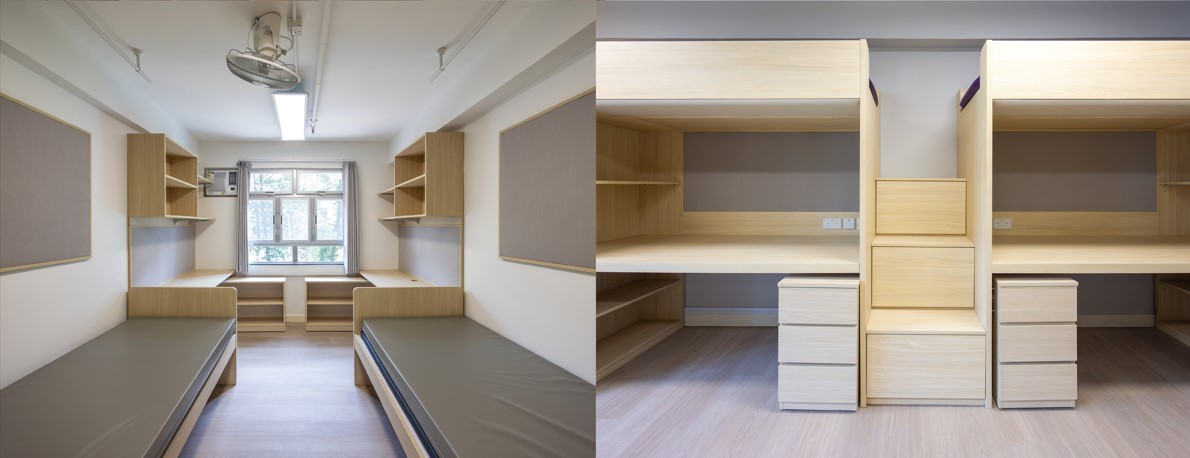
The renovation this year is the second major refurbishment in the history of Ho Hall, with the last renovation dating back to 2002. This renovation further enhances the facilities in the hostel to meet the needs of students for both study and leisure.
Q: What significant changes have you seen in your life at Ho Hall?
Firstly, it’s the upgrade of facilities. After the recent renovation, the entire hostel has become much more aesthetically pleasing. In the past, there were many flaws due to the lack of renovation for a long time, such as the worn-out sofas in the lobby, dusty blinds, and loose floor tiles in the rooms, all of which were resolved after the renovation. The current pantry is also magnificent, with brand new kitchenware and refrigerators, as well as a large wooden door and opaque glass walls.
The “worn out” state before the renovation is also worth cherishing as it created Ho Hall’s “rustic” (informal) atmosphere, where everyone was happy to be more casual, focusing more on interpersonal relationships and human touch. Even the flaws in the hostel could become topics of conversation—we even knew which rooms had especially warm or cold air conditioning. Now, residents no longer need to guess the functionality, as new air-conditioners have been installed.
Secondly, the lifestyle and interaction patterns of the residents have also changed. In the past, residents were like “neighbours,” with a strong sense of bonding. We wouldn’t lock our doors, and by just opening the door to the neighbouring room, we could invite residents to eat together. The pantry used to be open design, without doors or other obstructions, which not only became a gathering place for residents but also made everyone’s culinary skills easily known. Nowadays, residents value personal space more and prefer staying in their rooms, and the pantry on each floor is no longer open-style, which seems to reduce the chances of mingling. However, in my opinion, the renovation work has also considered how to create chances and spaces for residents to reach out to each other, such as adding a kitchen and dining area in the lobby, refurbishing the common area on the first floor, and also adding the fitness room donated by former residents.
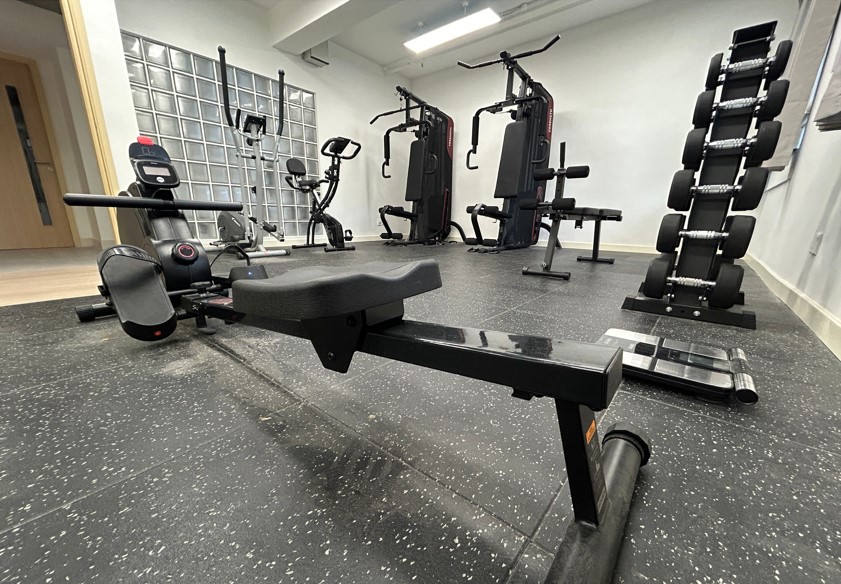
A meeting room has been renovated into a fitness room, with the fitness equipment sponsored by a group of former Ho Hall residents.
Q: So, what do you think has been passed down in Ho Hall?
I think it should be the relationship between hostel staff and residents. For example, Dr. Li Chun Hong, who has been the warden for many years, has a very close relationship with us. Dr. Li enjoys interacting with students and holds “Meal with the Warden”. It was an idea conceived by Dr. Li many years ago and has been continued until now. He invites students to the warden's quarters, cooks personally, and shares meals while communicating with students. This may be a unique tradition at CUHK.
In addition to the warden, there are also hostel workers. In fact, they spend a lot of time at the front desk and are familiar with the comings and goings of the residents, and they also communicate with us. Personally, Kui Jie is the hostel worker I interact with the most. I remember when I was a freshman and had just joined the Residents’ Association, one night I chatted with her for a long time and even walked together to the University Station to take the train. During that time, I learnt about her family life outside of work. At that time, she was no longer just a hostel worker but a neighbour with whom I could share personal stories. I believe that valuing interpersonal connections is a precious value that Ho Hall has always passed down.

Ronald says that the spirit of “Ho Hall residents” is to cherish the connections between people and hopes that this value can continue to be passed down.
English Translation Leung Nga Wing